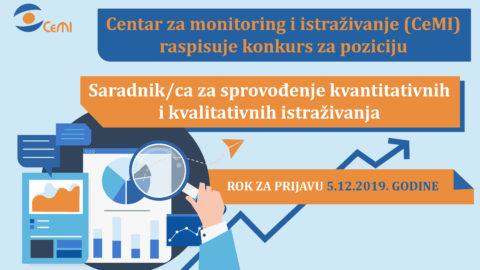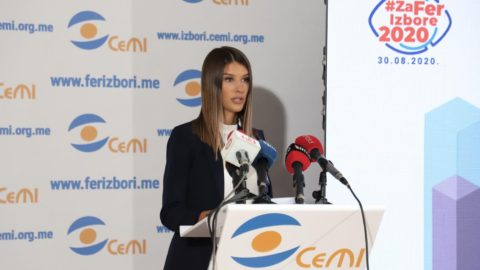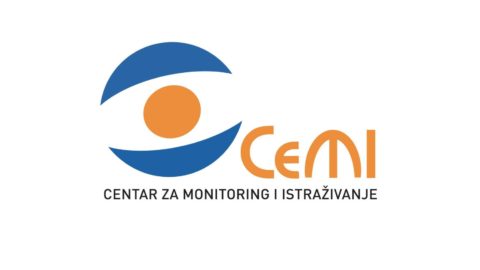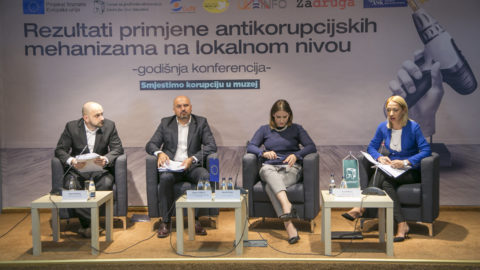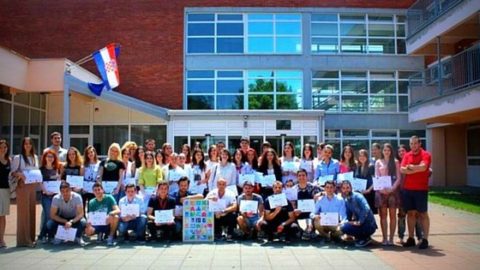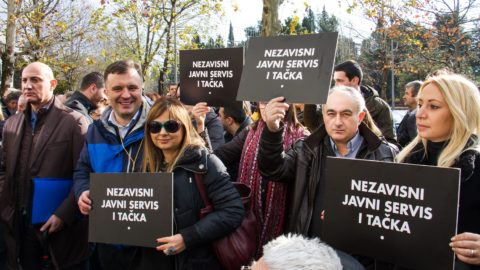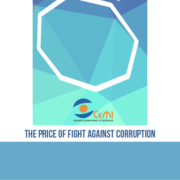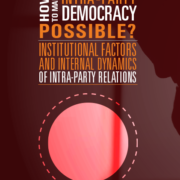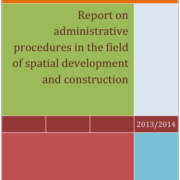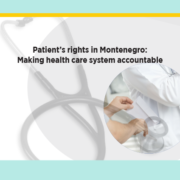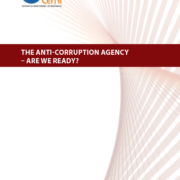Centre for Monitoring and Research (CeMI) is implementing a project entitled “Let Fair Elections Become a Habit! – Building Trust in the Integrity of the Electoral Process in Montenegro.”
The overall objective of the project is to contribute to a higher level of consolidation of democracy and rule of law in Montenegro.
The specific objective is to increase the level of public trust in the integrity of the electoral process, by advocating for adequate changes of institutional and legal electoral framework, in accordance with international standards, thus building a consensus within the political society and civil society organizations in Montenegro.
The main target groups of this project are: political parties, electoral management bodies, state authorities, the Parliament – which is the “Associate” to this project, the international community, civil society, citizens with an active right to vote.
Special attention of the project will be put on anti-discrimination, especially of Roma minority, who do not have equal rights as other minority by the Law, as well as women, who are still inadequately represented at all levels.
The project envisages the organization of the folloving activities:
• Forming of an expert team, with good electoral background, which would conduct quality and thorough assessment of key disputed areas of elections and previous challenges;
• Assessing the practice and conducting legal analysis of the electoral process in Montenegro, by expert teams;
• Developing the report in the form of policy analysis, which will be used by working groups for development of policy papers;
• Conducting of two public opinion polls in order to measure the perception of citizens about electoral framework and recent elections;
• Organization of local consultations with citizens in all municipalities of Montenegro through public discussions;
• Building of a web-based e-platform, where citizens would participate in discussing all relevant electoral topics, report about their negative experiences, and indicate possible risks of fraud, thus participating in the overall advocacy process;
• Creating a joint Civic Council for free and fair elections, with members of all major political parties, civil society and academia/experts;
• Creating two working groups (1. electoral system, 2. electoral management bodies), consisted of election experts and political parties’ representatives, where each of the working groups would be in charge of analyzing and proposing adequate policy changes and mechanisms for improvements to the Council;
• Preparing policy papers on key findings and policy recommendations in the sphere of elections (1 policy study and policy brief) at a joint three-day seminar;
• Developing of 1 policy study and 1 policy brief;
• Organizing a National Conference in cooperation with the Parliament for presenting policy recommendations and scenarios;
• Further advocacy actions aimed at adoption of policy recommendations through direct meetings with key decision-makers and informational campaign for citizens.
The project is implemented with the support of the EU.


 Montenegrin
Montenegrin
